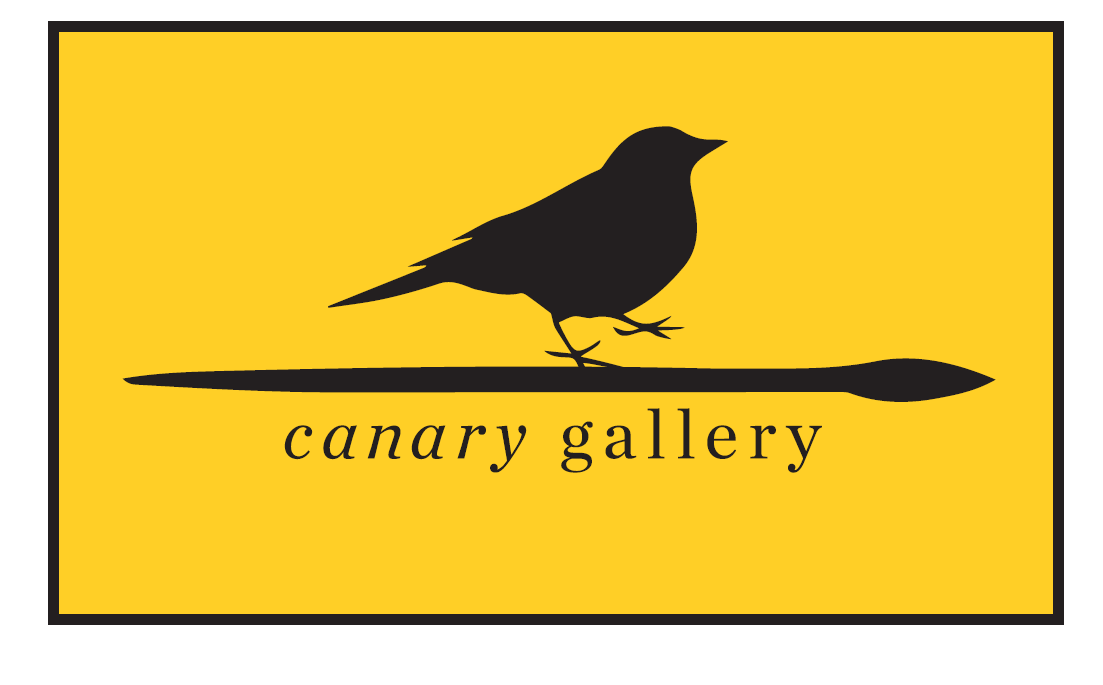Debra Riffe
About the Artist
DEBRA EUBANKS RIFFE is a native of Tupelo, Mississippi. She earned her BFA from Howard University, College of Fine Arts, Washington, DC and has been a professional graphic designer and illustrator for more than thirty years. Debra lived abroad and traveled, extensively, around the Caribbean basin. Much of her time was divided between the northwestern seaport city of Barranquilla and the Department of La Guajira Peninsula located in the northeastern tip of Colombia, S.A. near the Venezuelan border. She participates in juried exhibitions, locally and regionally, and is the recipient of many awards including an Individual Artist Grant presented by The Cultural Alliance of Birmingham. Debra has studied under internationally renowned printmaker and illustrator Barry Moser and she participates in select workshops and classes around the country, biennially. Her block prints are included in many collections, both private and institutional, including the Birmingham Museum of Art, the Freedom Rides Museum at the Historic Greyhound Bus Station (Montgomery, AL), Dillard University (New Orleans, LA), Athens State University (Athens, AL), Indian Springs School (Indian Springs, AL), the Bluff Park Association Permanent Collection (Hoover, AL), and at the National Historic Landmark 16th Street Baptist Church (Birmingham, AL), to name a few. Debra teaches linoleum block relief printing workshops several times a year.
While living abroad, Debra discovered a common set of experiences that parallel patterns found in the culture of the American South. Food, race, religious traditions and music are topics that continually shape her visual narratives. Her style varies from whimsy to historic. Debra enjoys the versatility and the immediacy of drawing with a pencil and the physicality of turning the wheel of a printing press. Through simplicity of form, she uses basic art principles to convey shape, gesture, attitude, movement and emotion. Her compositions, mostly figurative, are images of African Americans performing routine tasks in timeless, solitary reflective moments; tasks that speak of social status and identity, intimacy and a sense of place. Debra appreciates the ordinary and, within each print, she attempts to record details and subtle hallmarks that will stir an emotion the viewer might respond to. She works from memory, sketchbook drawings or from photo references culled from newspaper and magazine clippings. Occasionally, Debra will stage a photo shoot and select wardrobe and props designed to capture the angle and intensity of light and darkness, dramatic shadows or variations of patterns and folds on quilts or fabric. Once an edition is complete and numbered, Debra attempts to guide her viewers with a title based on dialect derived from features in southern speech. The elements of black vernacular are lyrical and layered and many times, when rooting around her favorite bar-b-que haunts or juke joints in Alabama and Mississippi, she will extract bits and pieces of random conversations that she has overheard or engaged in, with incredible eclectic patrons, and combine phrases or expressions into her titles. The titles of her finished prints are always written in lower case.
Although she was introduced to printmaking in college, Debra's technical skills and methods have evolved through trial and error and she has become more adept at isolating concepts and refining forms. Printing with a single color allows for more spontaneity than mixing colors and layering in the reduction method. Debra enjoys the challenge of printing images with a rich, black oil-based ink. The contrasts of sharp black modulating lines on bright white archival printmaking paper gives each print an infinite range of tonal variations and texture. Carving wood or linoleum allows very little room for error but Debra enjoys the technical challenge of balancing intricate details and negative space.
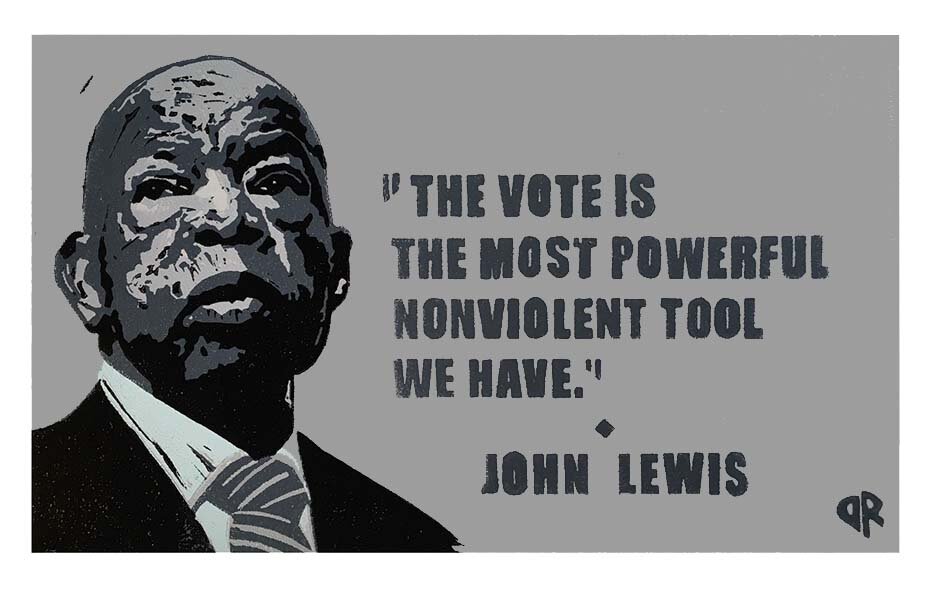
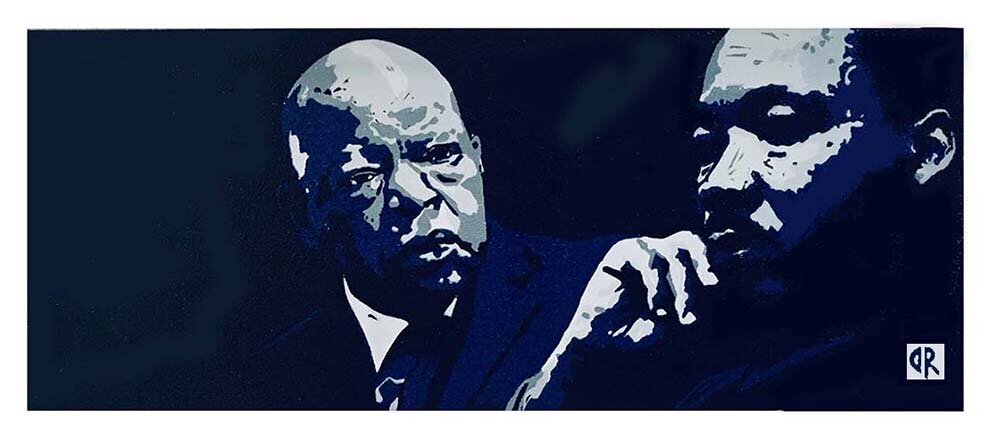
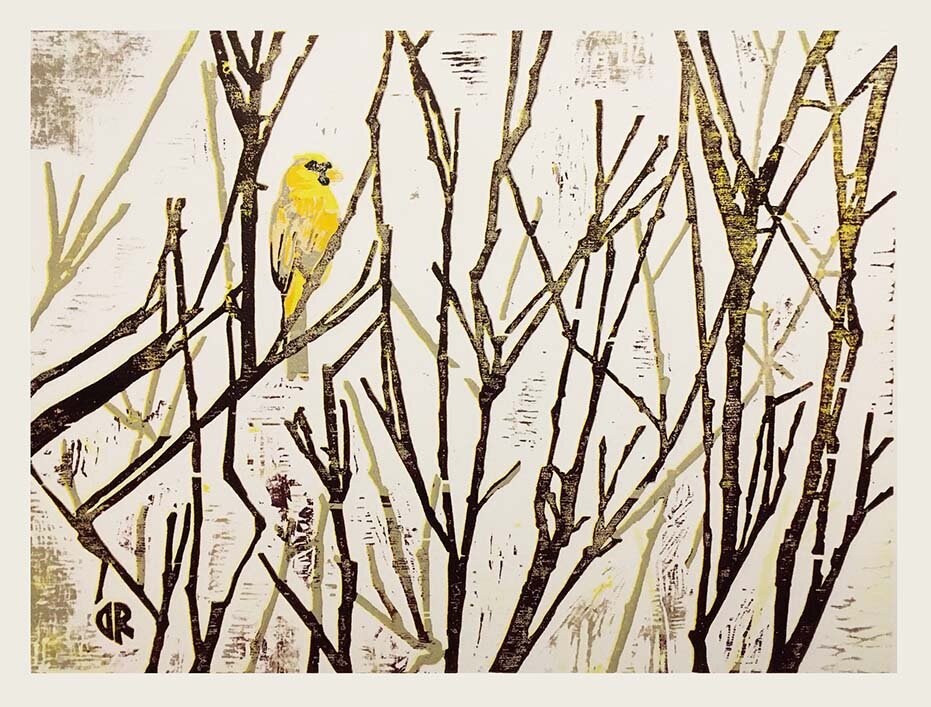
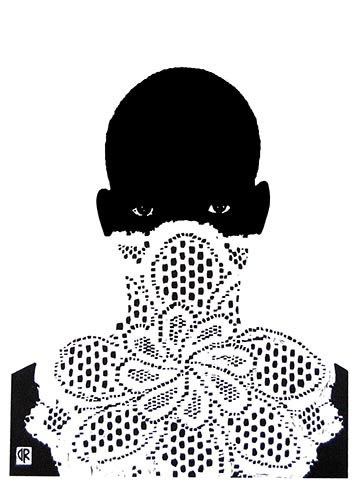
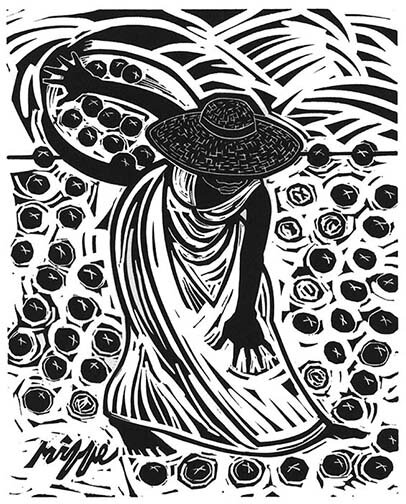
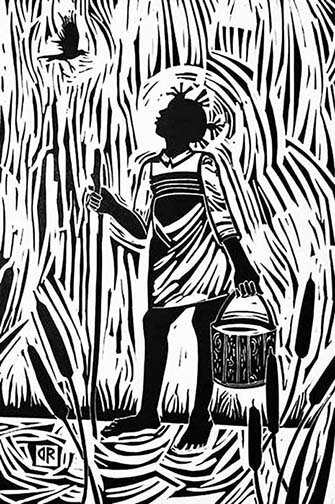


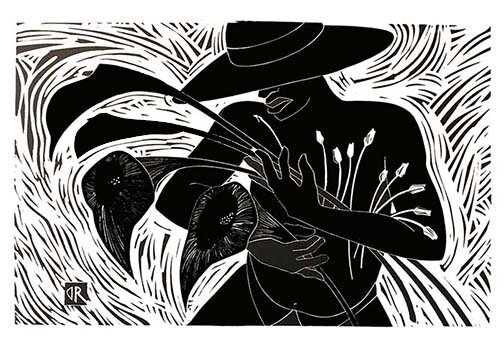
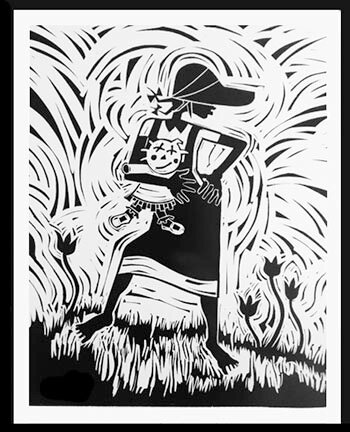

Caste
6 color reduction linoleum block; 18.50 x 24.125
